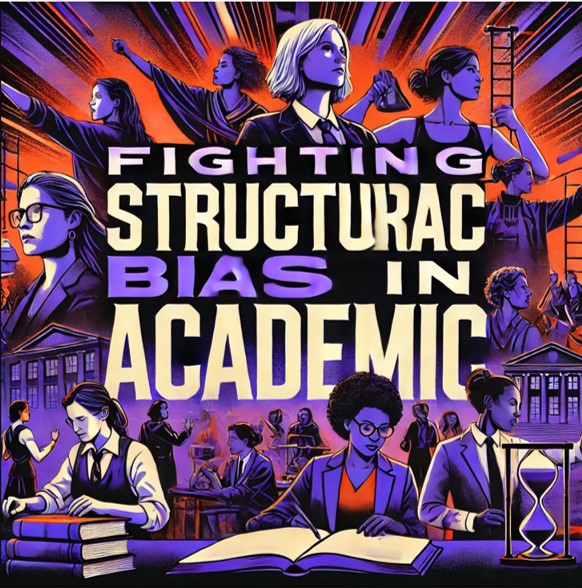International Women´s Day 2025: Mothers in Academia: Stronger Together
Published in Ecology & Evolution

If you are an academic, want to become a mother, or already are one, we want you to know that you are not alone. On this challenging journey, many women like you are facing the same barriers but also fighting for change.
Motherhood should not be an obstacle to professional growth, yet structural barriers continue to hold us back. However, together we are stronger. We can organize, advocate, and transform academia into a fairer and more welcoming space for all.
This International Women's Day (8M 2025), we want to raise our voices and embrace sisterhood. The Mediterranean Institute for Advanced Studies (IMEDEA CSIC) invited us to share our experiences in a live interview on YouTube, where we discussed our realities, the challenges of being mothers in academia, and the solutions we propose to make science a more inclusive environment. The discussion, moderated by Bàrbara Barceló-Llull and organized by Ana Bonilla both from the IMEDEA, CSIC-UIB, Spain, was a valuable opportunity for reflection and debate. This video, available in Spanish, is an opportunity to come together and keep pushing for change toward a more equitable academia.
Our conversation featured Esther Sebastián-González, Eva Graciá, Alejandra Morán-Ordoñez, Irene Pérez-Ibarra, Ana Sanz-Aguilar, and Mar Sobral, authors of the article "Ten Simple Rules for a Mom-Friendly Academia", published in PLOS Computational Biology in 2023. We discussed how motherhood affects our permanence in academia, gender biases in evaluations, and strategies we can implement to drive change.
Video here:
📍 "¿Abandonar o resistir? Maternidad y conciliación en la carrera científica"

We know that in many disciplines, the number of women entering research is similar to that of men, yet their presence declines drastically as they move up the academic hierarchy. This "scissors diagram" is no coincidence—it is the result of biases in evaluation, the lack of recognition for our contributions, and the impact of motherhood on job stability.
Studies show that female scientists who are mothers are 27% less likely to secure a stable academic position compared to male colleagues with children and 21% less likely than women without children. Furthermore, 43% of female scientists leave full-time academia after having their first child, compared to 23% of men. This is not due to a lack of talent; it is a system that pushes us out.
To change this reality, we propose concrete measures: support during pregnancy, paid parental leave, childcare facilities at universities and conferences, work schedules compatible with family life, and adjustments to teaching responsibilities. We also emphasize the need to extend deadlines in research funding calls for mothers. Existing legal frameworks support these positive corrective actions, but they need to be implemented!
For example, Spain’s 2007 Equality Law mandates measures to correct structural inequalities, while Royal Decree-Law 6/2019 requires the removal of obstacles that hinder women's advancement in science. However, this content in these laws is not being put into practice. Positive actions to correct structural inequalities are not only legal but are actually recommended by law!
Transforming academia is not just a matter of social justice but also of quality and diversity in research. The loss of female talent due to structural barriers weakens scientific progress. Implementing work-life balance policies, recognizing the impact of motherhood on academic careers, and eliminating biases in evaluations are essential steps toward creating an academic environment where we can grow and contribute fully.
The live discussion with IMEDEA CSIC was a space for connection, support, and community. This 8M, we reaffirm that science is ours too. If you want to join the discussion, share your experience, and stand together with us, we encourage you to watch the video, spread the message, and be part of the movement for a fairer academia for all. Because when one of us advances, we all advance. Together, we are unstoppable!
Esther Sebastián-González (University of Alicante)
Eva Graciá (University of Murcia)
Alejandra Morán-Ordoñez (CREAF, Catalan Institution for Research and Advanced Studies)
Irene Pérez-Ibarra (ARAID, University of Zaragoza)
Ana Sanz-Aguilar (IMEDEA CSIC)
Mar Sobral (University of Santiago de Compostela)
Bàrbara Barceló-Llull (IMEDEA CSIC)
Ana Bonilla (IMEDEA CSIC)





Please sign in or register for FREE
If you are a registered user on Research Communities by Springer Nature, please sign in